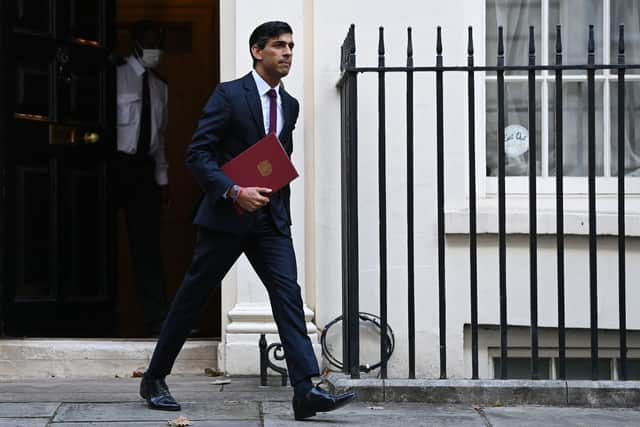Scotland's fiscal framework: How the UK Government is helping the Scottish Government build a better future – John Glen, Chief Secretary to the Treasury
Recent years have tested how government should support people through times of crisis. The UK Government has never shied away from this test, and we continue to deliver for Scotland. Take the furlough and self-employed schemes during the pandemic, for example – a lifeline that supported more than 900,000 jobs in Scotland.
We’re conscious of the ongoing pinch that the cost of living is having on pockets, too. Families and businesses facing rising prices and higher mortgage payments are having a tough time. I was happy to see inflation fall last week – it remains too high and there is still a long way to go, but the difficult decisions we have taken with our public finances are yielding results.
Advertisement
Hide AdAdvertisement
Hide AdThe most important thing we can do is stay the course and stay disciplined with our plan to halve inflation this year, while supporting the Bank of England to return it to the two per cent target. In the meantime, we are giving direct payments to those struggling the most and have held down energy bills to save the typical household more than £900 in 2022-23.
I am steadfast in my belief that we are best able to tackle these challenges together as one United Kingdom. Just last month we saw the fruits of that, with the Glasgow City region and the North East of Scotland announced as the UK’s first investment zones, which are areas where tax incentives and funding are made available by both governments to help attract investment, and improve skills and local infrastructure.
The pace at which these agreements were reached shows what can be achieved when there is a focus on delivering economic growth and opportunity for people in Scotland. I am also deeply committed to making devolution a success and ensuring it continues to benefit people.
It is more than eight years since the Smith Commission agreed its recommendations for a new devolution settlement to strengthen the powers of the Scottish Parliament. That agreement, backed by political parties including the SNP and accepted in full by the UK Government, marked a significant moment for the future of Scotland as part of the United Kingdom.
It was also the springboard for the UK and Scottish Governments to agree a fiscal framework. This has provided a strong foundation that shielded the Scottish Government’s budget from impacts that were felt UK-wide over the course of the pandemic, and it has been flexible enough for us to provide the extraordinary additional support that has been required. But there are always opportunities for improvement. That’s why – learning from the past seven years – our review of the fiscal framework has ensured the funding for Scotland continues to be fair, effective, and transparent.


This week the Deputy First Minister and I agreed a package of changes to ensure that the fiscal framework remains fit for purpose. While the UK and Scottish Governments may have areas of disagreement, this deal was rooted in collaboration and the core components were proactively put forward by the UK Government.
We’ve heard the calls for certainty and flexibility, and sought to tackle those head on. There can be no greater certainty than the protection of the Barnett formula. It provides the Scottish Government with around £125 per head of population for every £100 per head the UK Government spends on the same things in England and will continue to do so over the medium term. That was worth more than £8 billion to Scotland last year.
When it comes to tax, the Scottish Government keeps every penny of devolved Scottish taxes and then receives an additional contribution from the rest of the UK – an arrangement that we have preserved. This is a move worth billions of pounds over the coming years. We will continue to top up the Scottish Government’s tax revenues. This amounted to £1.4 billion last year – a core benefit of sharing resources as a strong union
Advertisement
Hide AdAdvertisement
Hide AdThe Scottish Government also stands to be more nimble and agile in its budget planning, thanks to the removal of withdrawal limits on Scotland's fiscal reserve and a permanent doubling of the borrowing limit to manage possible scenarios where the block grant adjustments or Scottish tax revenues are different from their forecast levels in a way that could reduce the money available to the Scottish Government. These measures may sound arcane, but they will have an immediate effect on the level of funding available for public services in Scotland – boosting spending through borrowing by £90 million next year.
And crucially, the deal we’ve reached will also boost the Scottish Government’s annual and overall capital borrowing limits in line with inflation. That’s more money for further investment in schools, hospitals, roads and key infrastructure projects across Scotland – driving better-paid jobs, spreading opportunity from Shetland to Stranraer, and helping build a better future for the country. All in all, a strong and fair deal for Scotland. I’m proud that the UK Government has put it on the table.
John Glen is the UK Government’s Chief Secretary to the Treasury and Conservative MP for Salisbury
Comments
Want to join the conversation? Please or to comment on this article.
